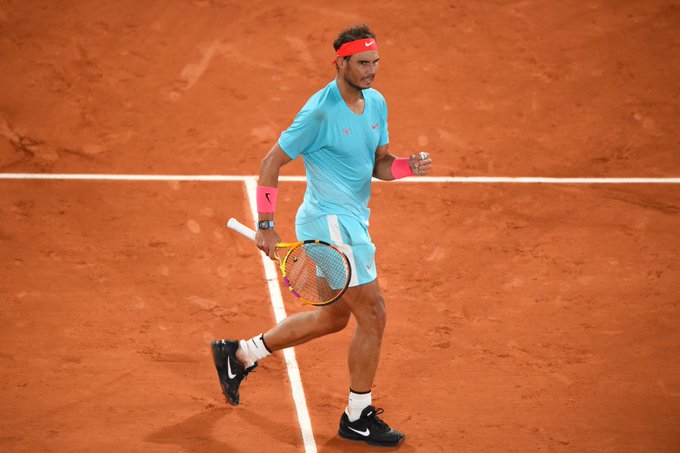The best tennis players look and act very self-confident, but we forget that what they are experiencing might be completely different from what we are able to see from the outside. They too are experiencing uncertainty and doubt. Just like you and I. Some days, you feel like you move effortlessly, and it almost seem like you can’t miss the court with your forehand. Other days you doubt if you can even put your forehand into the court.
20-time Grand Slam Champion Rafael Nadal talked in press conferences about his lack of self-confidence in 2015. He expressed how he did not experience the feeling of self-confidence despite the fact that he will go down in the history books as one of the best players the world has ever seen.
So if you sometimes get the thought that you are the only one struggling with confidence, remember that even the best players in the world struggle. The best players in the world are not super-humans who only have positive thoughts, are always motivated and feel very self-confident.
Also remember that more self-confidence is not always better. There is a very fine line between having high self-confidence and having too big of an ego. If you are having too big of an ego, it often leads to not preparing well enough, or you might get a little bit too cocky in the way that you are going about your performance.
That said, it can also be problematic to not experience any self-confidence at all which might then lead you to dwell and to struggle with quick decision-making on the court. You might find yourself accepting to hit too many backhands instead of covering more of the court with your forehand; or, instead of stepping up close to the baseline, you find yourself playing more defensive a meter behind the baseline.
We need to redefine our understanding of self-confidence. We cannot let out emotional state dictate our performances as our emotions are fleeting and very hard to control. If you try to control your emotions all of your focus and energy will be occupied fighting an internal battle instead of having full awareness on your gameplan and executing your shots fighting the outside battle against the player on the other side of the court.
The act of self-confidence comes before the feeling.
When Rafael Nadal talks about his lack of self-confidence, he is talking about the feeling of self-confidence. Rafael understands that he can’t control the feeling, but what he can control is his actions. He understands that the antidote to the doubt, and the worries that is creeping in on him, is courage. The courage to step up to the line, covering two thirds of the court with his weapon and keep following his gameplan despite the feeling of self-confidence not being present at all times.
Rafael understands that the feeling of self-confidence is a bonus that comes after the good performances. Not the other way around as many tend to think. Many are stuck in the belief that we need to feel or think in a certain way before we are able to perform well. That “if I only had more self-confidence, then I would perform better.” Maybe in reality it’s about having the courage to act like you already had the confidence in order to provide yourself with the opportunity of performing well. Then, after the good performance, the nice feeling of self-confidence might arise as a bonus making it easier to be courageous in your actions for the next match.
Remember that the act of self-confidence comes before the feeling.
Adam Blicher
Danish Sport Psychologist Consultant Adam Blicher is a member of the International Sport Mental Coach Association






